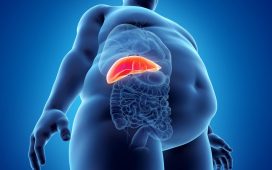Significantly increased odds seen for irritable bowel syndrome, functional dyspepsia compared with nonexposed controls
By Elana Gotkine HealthDay Reporter
WEDNESDAY, July 17, 2024 (HealthDay News) — A considerable proportion of individuals experiencing acute gastroenteritis develop postinfection irritable bowel syndrome (PI-IBS) and postinfection functional dyspepsia (PI-FD), according to a review published online July 16 in Gut.
Serena Porcari, M.D., from Universit Cattolica del Sacro Cuore in Rome, and colleagues conducted a systematic review and meta-analysis to examine the prevalence of PI-IBS or PI-FD after acute gastroenteritis using data from observational studies recruiting 50 or more adults. Forty-seven studies were eligible, with 28,170 individuals.
The researchers found that the overall prevalence of PI-IBS was 14.5 percent and the prevalence of PI-FD was 12.7 percent. In 39.8 percent of individuals, IBS persisted in the long term (greater than five years of follow-up) after diagnosis. Compared with nonexposed controls, individuals experiencing acute gastroenteritis had significantly higher odds of IBS and FD (odds ratios, 4.3 and 3.0, respectively). The strongest association was seen for PI-IBS with parasites (prevalence, 30.1 percent), but only in two studies, followed by bacteria and viruses (18.3 and 10.7 percent). The highest PI-IBS prevalence was seen in association with Campylobacter in available studies (20.7 percent), while the highest odds for PI-IBS were yielded by Proteobacteria and severe acute respiratory syndrome coronavirus 2 (SARS-CoV-2; odds ratio, 5.4 for each). The prevalence of PI-FD was 10.0 and 13.6 percent for SARS-CoV-2 and bacteria (Enterobacteriaceae, 19.4 percent), respectively.
“Our findings provide an update to the epidemiology of PI-IBS and PI-FD and of the likelihood of developing them after acute gastroenteritis,” the authors write.
Several authors disclosed ties to the pharmaceutical industry.
Copyright © 2024 HealthDay. All rights reserved.








